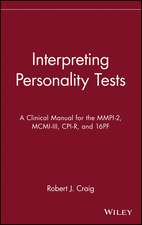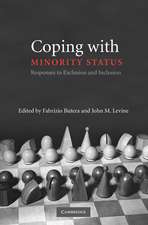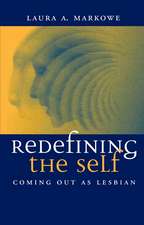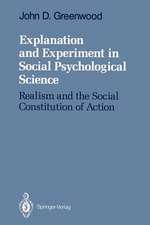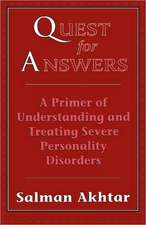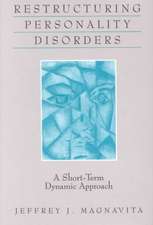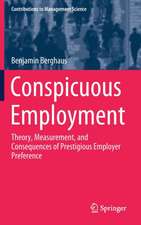The Psychology of Habit: Theory, Mechanisms, Change, and Contexts
Editat de Bas Verplankenen Limba Engleză Hardback – 8 noi 2018
Among the topics covered:
- Habit
mechanisms
and
behavioral
complexity.
- Complexities
and
controversies
of
physical
activity
habit.
- Habit
discontinuities
as
vehicles
for
behavior
change.
- Habits
in
depression:
understanding
and
intervention.
- A
critical
review
of
habit
theory
of
drug
dependence.
- Questions
about
the
automaticity
of
habitual
behaviors.
| Toate formatele și edițiile | Preț | Express |
|---|---|---|
| Paperback (1) | 1223.25 lei 6-8 săpt. | |
| Springer International Publishing – 26 dec 2018 | 1223.25 lei 6-8 săpt. | |
| Hardback (1) | 1230.48 lei 6-8 săpt. | |
| Springer International Publishing – 8 noi 2018 | 1230.48 lei 6-8 săpt. |
Preț: 1230.48 lei
Preț vechi: 1500.60 lei
-18% Nou
235.51€ • 244.94$ • 197.36£
Carte tipărită la comandă
Livrare economică 14-28 martie
Specificații
ISBN-10: 3319975285
Pagini: 632
Ilustrații: XIII, 418 p. 21 illus., 9 illus. in color.
Dimensiuni: 155 x 235 x 26 mm
Greutate: 0.81 kg
Ediția:1st ed. 2018
Editura: Springer International Publishing
Colecția Springer
Locul publicării:Cham, Switzerland
Cuprins
Introduction- Bas Verplanken
10. Raymond Miltenberger - The Habit Reversal Procedure
Notă biografică
Professor Bas Verplanken graduated and obtained his PhD at the University of Leiden, The Netherlands, where he worked as a Research Fellow and Lecturer from 1980-1990. From 1990-1998 he was a Lecturer and senior lecturer at the University of Nijmegen. From 1998 to 2006 he was a professor at the University of Tromsø, Norway. In 2006 he joined the University of Bath, where he was Head of Department of Psychology from 2010-2016. His research interests are in attitude-behaviour relations and change, applied in the domains of environmental, health, and consumer psychology. He has developed a special interest in habits. He published on a variety of topics, including risk perception, environmental concern, unhealthy eating, travel mode choice, values, self-esteem, body image, worrying, mindfulness, impulsive buying, behaviour change, and sustainable lifestyles. He served as an associate editor of the British Journal of Social Psychology and Psychology and Health.
Textul de pe ultima copertă
This unique reference explores the processes and nuances of human habits through social psychology and behavioral lenses. It provides a robust definition and theoretical framework for habit as well as up-to-date information on habit measurement, addressing such questions as which mechanisms are involved in habitual action and whether people can report accurately on their own habits. Specialized chapters pay close attention to how habits can be modified, as well as widely varying manifestations of habitual thoughts and behaviors, including the mechanisms of drug addiction and recovery, the repetitive characteristics of autism, and the unwitting habits of health professionals that may impede patient care. And across these pages, contributors show the potential for using the processes of maladaptive habits to replace them with positive and health-promoting ones. Throughout this volume attention is also paid to the practice of conducting habit research.
Among the topics covered:
- Habit mechanisms and behavioral complexity.
- Complexities and controversies of physical activity habit.
- Habit discontinuities as vehicles for behavior change.
- Habits in depression: understanding and intervention.
- A critical review of habit theory of drug dependence.
- Questions about the automaticity of habitual behaviors.
The Psychology of Habit will interest psychologists across a wide spectrum of domains: habit researchers in broader areas of social and health psychology, professionals working in (sub)clinical areas, interested scholars in marketing, consumer research, communication, and education, and public policymakers dealing with questions of behavioral change in the areas of health, sustainability, and/or education.
Caracteristici
Includes a focus on 'how to conduct habit research' in most chapters
Contains perspectives from major habit researchers
Combines habits of doing and habits of thinking
Descriere
This unique reference explores the processes and nuances of human habits through social psychology and behavioral lenses. It provides a robust definition and theoretical framework for habit as well as up-to-date information on habit measurement, addressing such questions as which mechanisms are involved in habitual action and whether people can report accurately on their own habits. Specialized chapters pay close attention to how habits can be modified, as well as widely varying manifestations of habitual thoughts and behaviors, including the mechanisms of drug addiction and recovery, the repetitive characteristics of autism, and the unwitting habits of health professionals that may impede patient care. And across these pages, contributors show the potential for using the processes of maladaptive habits to replace them with positive and health-promoting ones. Throughout this volume attention is also paid to the practice of conducting habit research.
Among the topics covered:
- Habit mechanisms and behavioral complexity.
- Complexities and controversies of physical activity habit.
- Habit discontinuities as vehicles for behavior change.
- Habits in depression: understanding and intervention.
- A critical review of habit theory of drug dependence.
- Questions about the automaticity of habitual behaviors.
The Psychology of Habit will interest psychologists across a wide spectrum of domains: habit researchers in broader areas of social and health psychology, professionals working in (sub)clinical areas, interested scholars in marketing, consumer research, communication, and education, and public policymakers dealing with questions of behavioral change in the areas of health, sustainability, and/or education.





